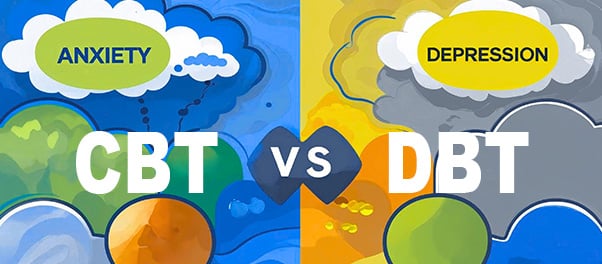How a Behavioral Therapist Can Adapt DBT Using Chain Analysis to Disrupt Emotional Avoidance
Dialectical Behavior Therapy (DBT) that helps individuals build skills for emotional regulation, distress tolerance, interpersonal effectiveness, and
DBT vs CBT for Chronic Pain: Hybrid Protocols and Opioid Reduction Outcomes
Chronic pain is one of the most common and complex health challenges worldwide. It affects physical function, mental health, and overall quality of
CBT vs DBT: Evidence-Based Choices for Anxiety and Depression Treatment
When facing anxiety or depression, choosing the right therapy can feel overwhelming. Cognitive Behavioral Therapy (CBT) and Dialectical Behavior
Forensic Psychology Meets DBT: Treating Complex Trauma in Incarcerated Populations
Incarcerated individuals often carry a heavy burden of psychological distress, which is frequently rooted in complex trauma. Traditional correctional
DBT vs CBT: DBT Outperforms CBT in Justice Settings with 40% Lower Reincarceration Rates
In the ongoing discussion of DBT vs CBT in justice settings, Dialectical Behavior Therapy (DBT) is gaining attention as one of the most effective
Using Mindfulness in DBT to Counteract Deindividuation and Impulsivity
Deindividuation is a psychological state where individuals lose their sense of identity and personal accountability, often in group or high-stress
Positive Reinforcement in DBT: Rewiring Neuroplasticity to Reduce Self-Harm and Boost Emotional Regulation
While Dialectical Behavior Therapy (DBT) is commonly associated with its four primary skill modules—mindfulness, distress tolerance, emotional
Who is a Mental Health Professional in a Correctional Setting?
Mental health professionals working in correctional settings play a pivotal role in the lives of incarcerated individuals, helping them navigate
Traumatic Brain Injury in Incarcerated Individuals
Causes, Symptoms & Treatment
Adapting Dialectical Behavior Therapy (DBT) for Correctional Settings: A Path to Rehabilitation and Emotional Well-Being
Dialectical Behavior Therapy offers a different approach, focusing on helping incarcerated individuals understand and manage their feelings. Instead


.png)

.png)

.png)







